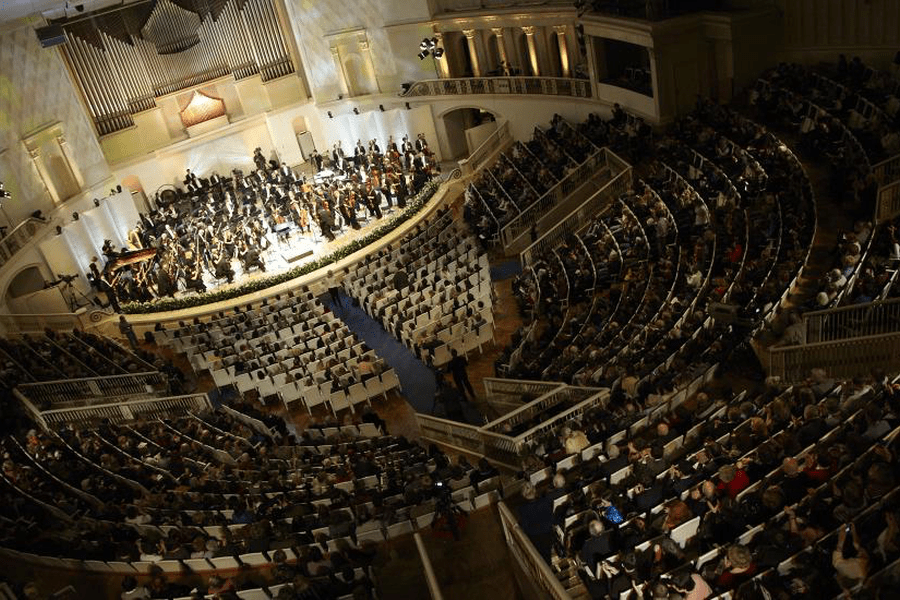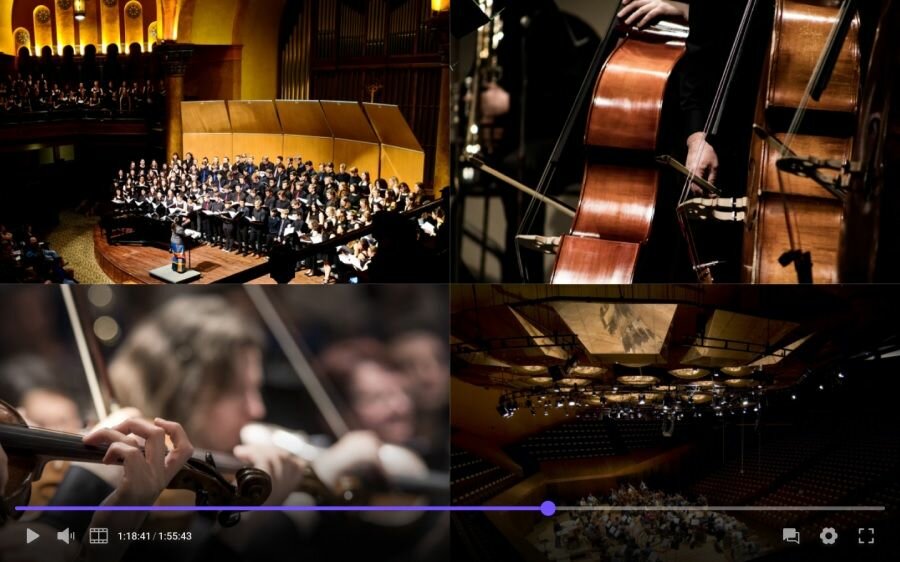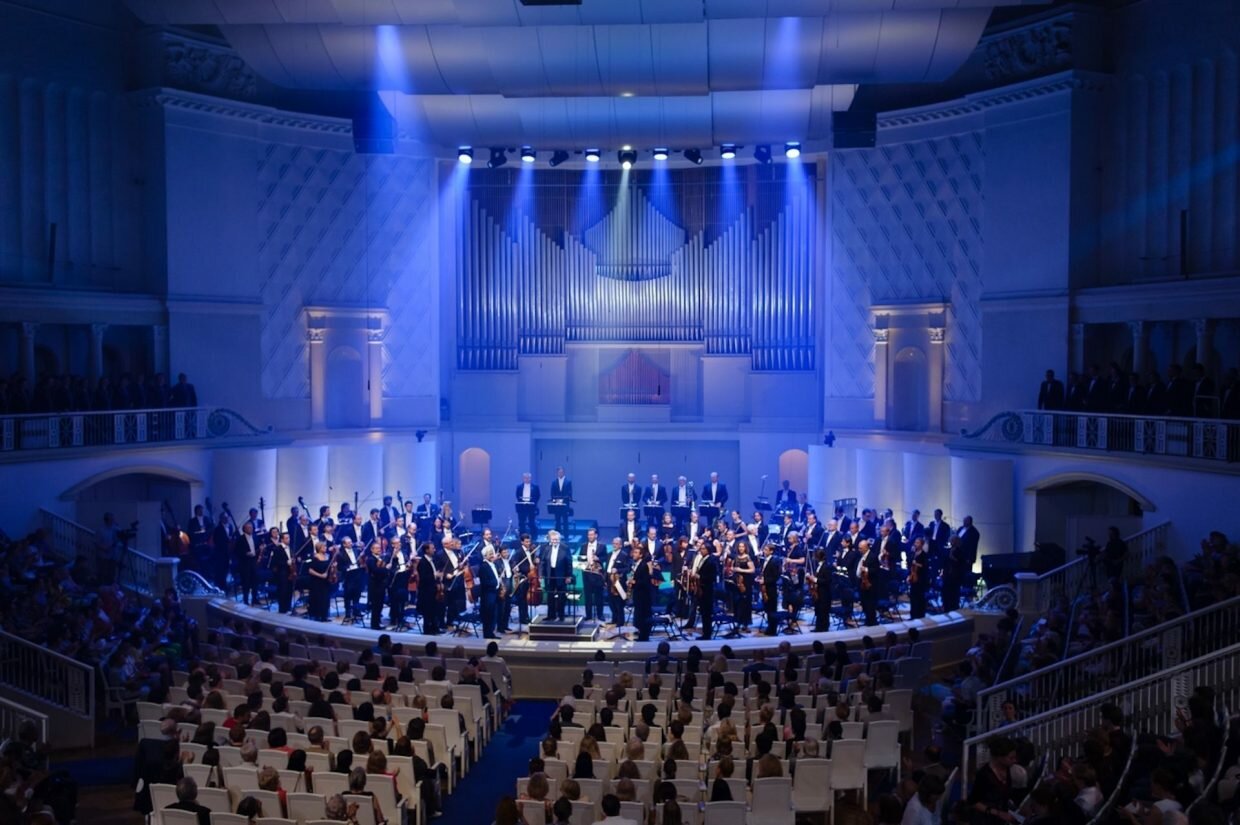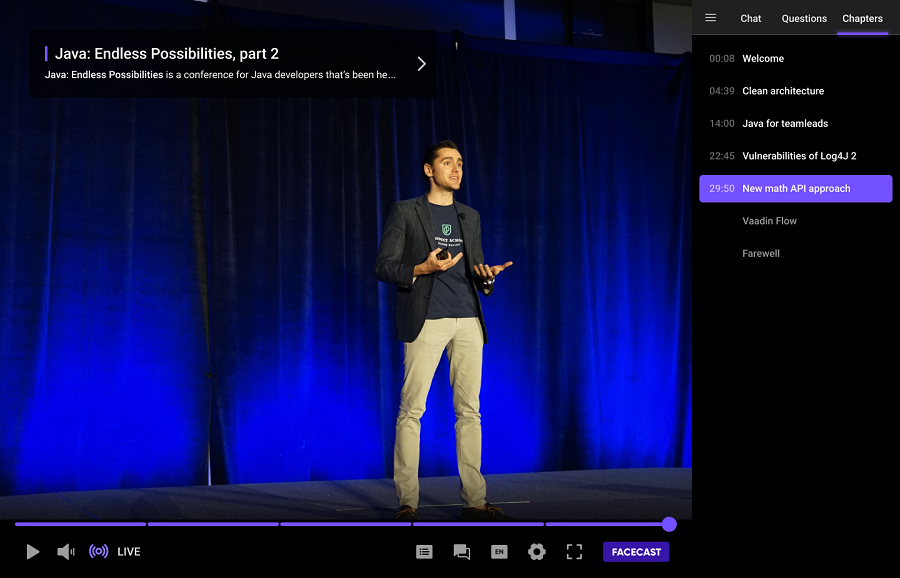Client
The Virtual Concert Hall is a unique project by the Academic Philharmonic Society. It involves large-scale concerts featuring well-known ensembles and soloists, accessible online to viewers regardless of the location.
At the beginning of the project, the client encountered difficulties due to an unstable internet connection, which led to interruptions in the live broadcasts. Viewers were noticing interruptions in both audio and video streams. The RTMP protocol initially used in the project couldn’t sustain a stable live broadcast in those conditions. Consequently, we opted for HLS and MPEG DASH.
Additionally, we developed a specialized algorithm for an extended buffer to ensure viewers with unstable internet connections do not experience issues. Enabling this option increases the player’s delay from the live broadcast by an additional 15 seconds so that it will provide more content in the buffer, enhancing the viewing experience for users with connectivity issues. Also, we incorporated the Facecast bonding technology and three backup streams with automatic balancing to ensure smooth transitions between streams in case any receiving server encounters troubles.
Thanks to these innovations, Facecast could ensure the guaranteed delivery of video and audio to viewers without any loss of content or quality.
To enhance the viewing experience further, we have created and integrated an ‘Original Audio Quality’ feature. This feature enables the transfer of the original audio track to the player without any compression, providing viewers with an authentic concert-like sound experience.

Result
Through the Facecast platform, using HLS, the State Philharmonic Society has already conducted over 1000 live broadcasts. Over 100 cities have joined the Virtual Concert Hall project.
Additionally, the Facecast team developed and implemented a multi-camera player — a technology that allows viewers to switch instantly between multiple filming points.






